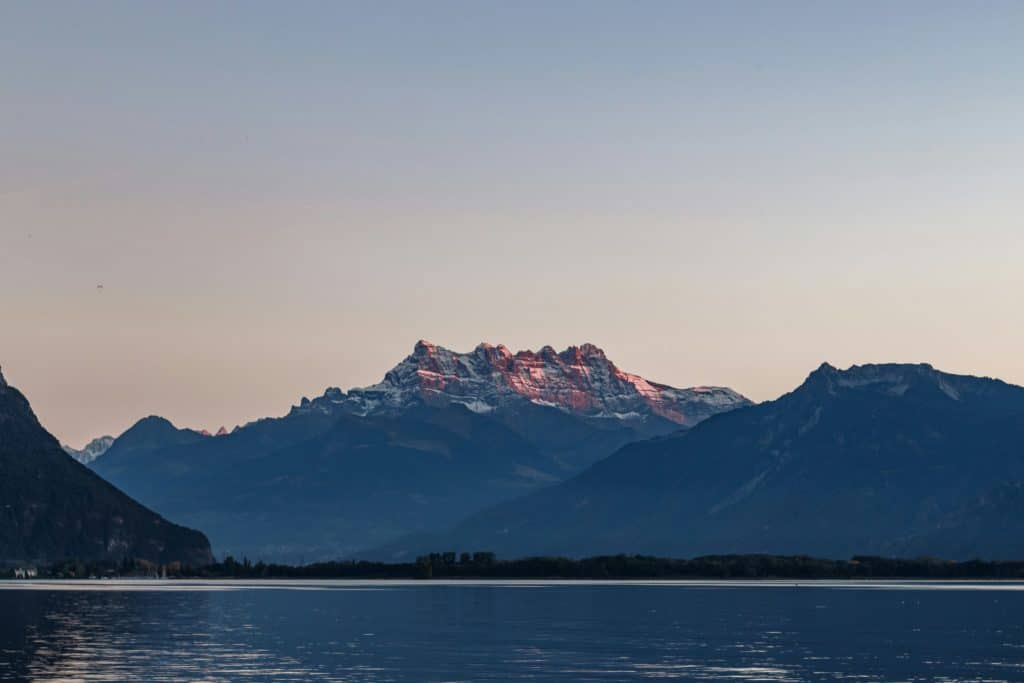Lémaniques no. 137 - When Lake Geneva takes on an oceanic air
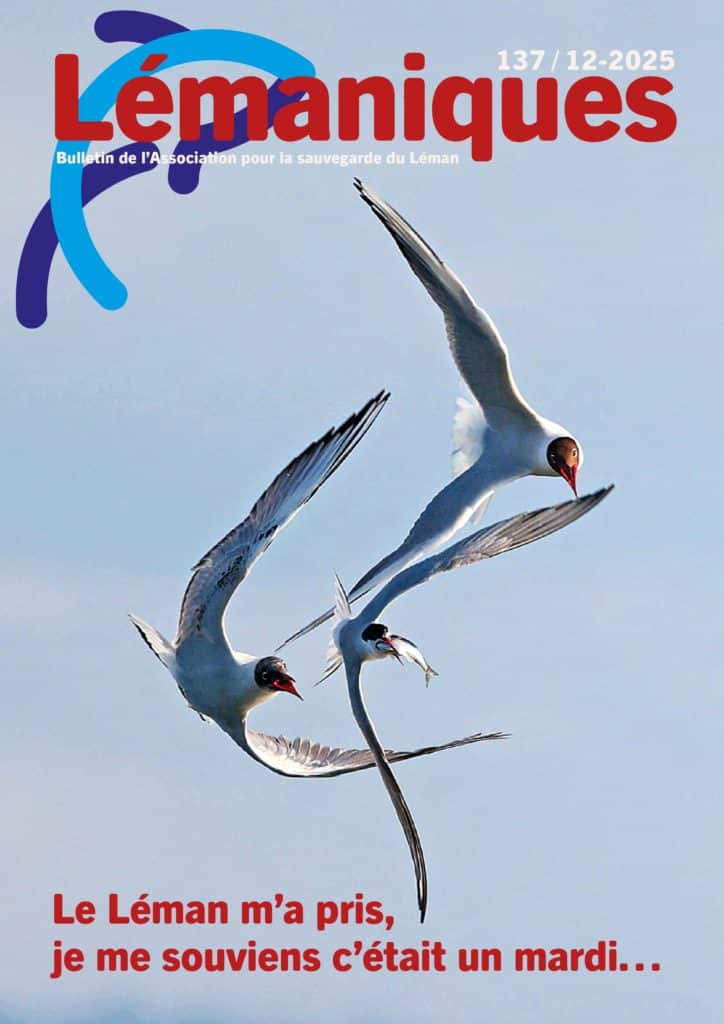
Lémaniques is the ASL's newspaper that tells the story of Lake Geneva, its challenges, its victories and those who are committed to the lake. And the good news is that the new issue has just been published! It's an expanded edition (16 pages instead of 12), beautifully illustrated with photos by ornithologist Lionel Maumary. In the article [...]
Lémaniques no. 136 - An uncertain future for Lake Geneva's leading fish species
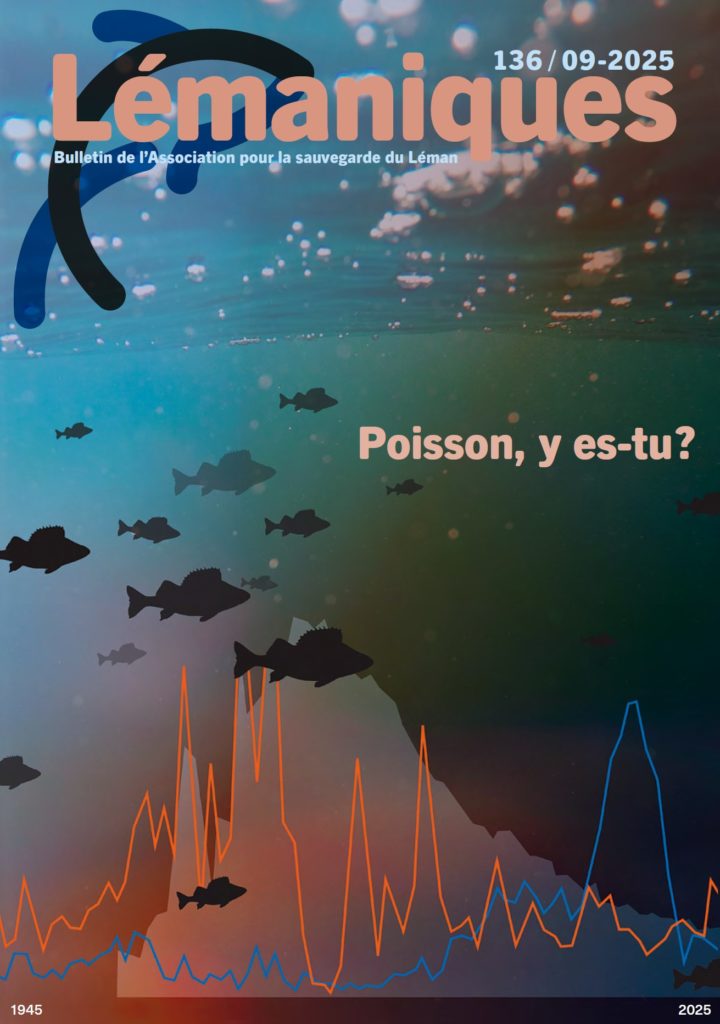
At the heart of this dossier are the Perch and Whitefish, symbols of Lake Geneva and indicators of the balance of its waters. In the face of environmental pressures, climate change and fisheries issues, their study serves as a reminder of the urgent need to pursue research and adapt fisheries management. Also featured in the latest issue of Lémaniques (no. 136) A [...]
Lémaniques no. 135 - The Great Lakes, sick in spite of themselves
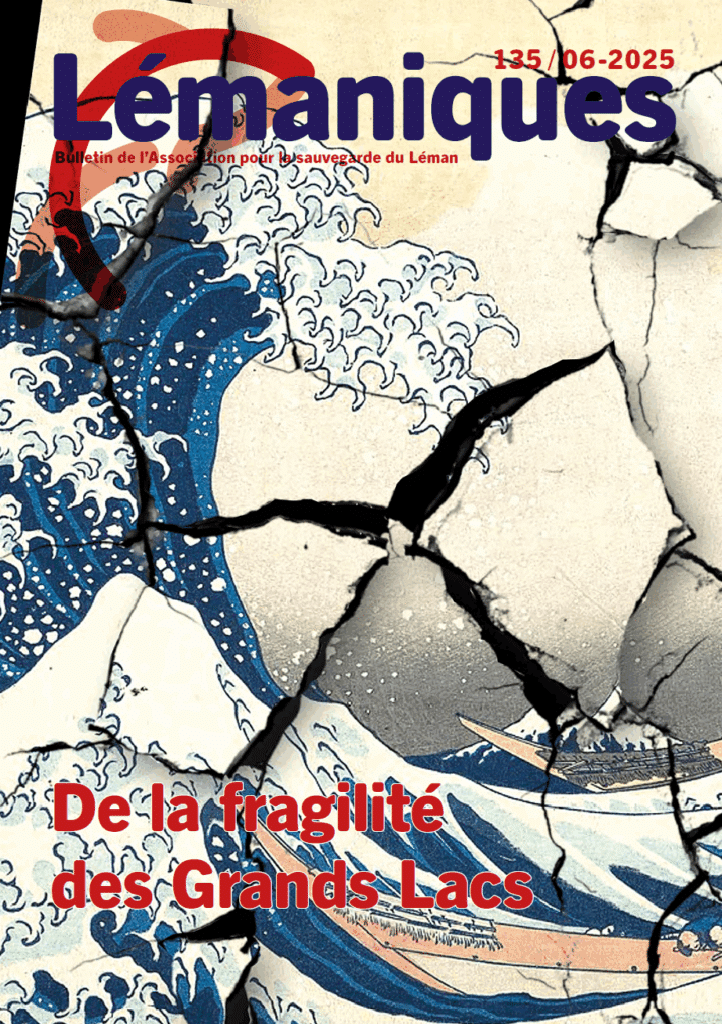
Following on from the first issue devoted to their power (Lémaniques No. 128), this new issue takes a lucid - and sometimes worrying - look at the hidden face of the Great Lakes, the fragile giants that include Lake Geneva. Despite their mass and their key role for the planet, they are showing signs of "poor health".
Lémaniques no. 134 - Amphibians and reptiles of the Lake Geneva region: 78% of threatened species!
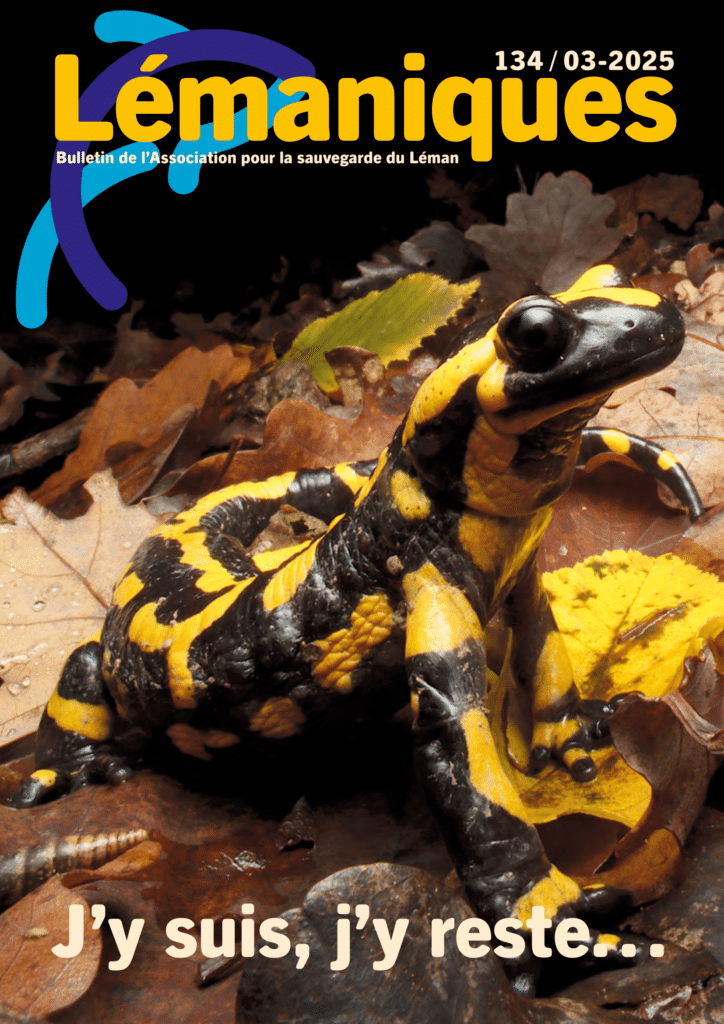
This new issue of Lémaniques puts the spotlight on these discreet lakeside inhabitants, whose ecological role is nonetheless fundamental. From the Common Natterjack to the Viperine Snake and the rare Green Treefrog, this panorama provides an alarming but fascinating overview of the local herpetofauna. You will discover why these species are excellent indicators of [...]
Lémaniques no. 133 - "Bloom!
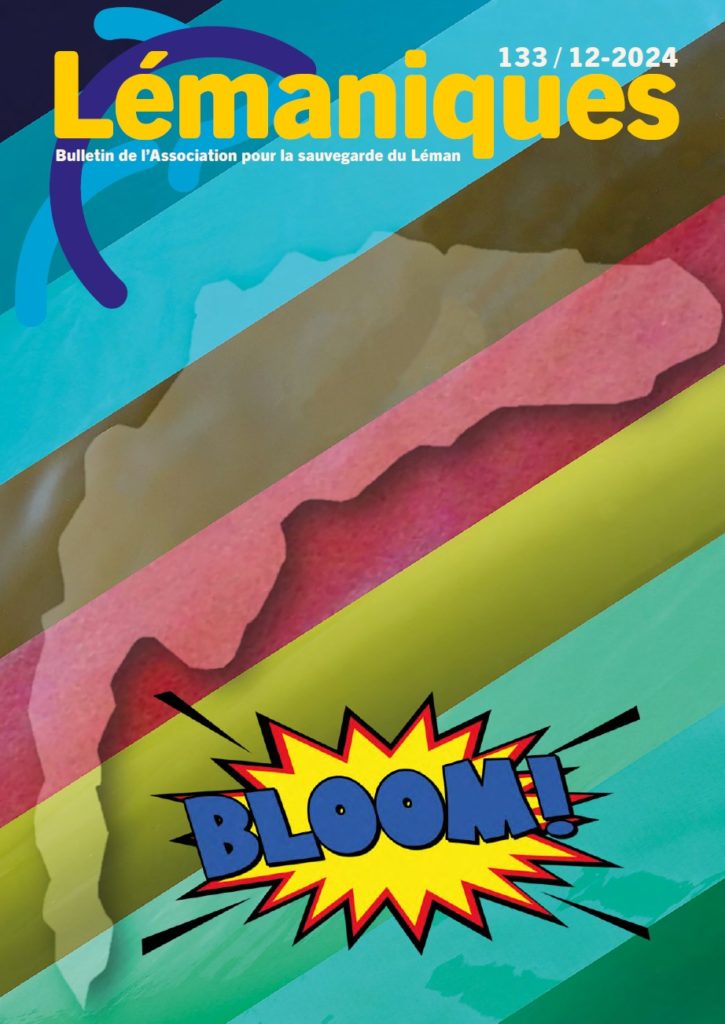
In this issue, find out more about a subject that is a major concern for Lake Geneva: algal blooms. These algal and cyanobacterial 'blooms', although natural, can sometimes proliferate excessively and unbalance the lake's ecosystem. These events, which are exacerbated by climate change, have a number of negative impacts on recreational activities, commercial fishing, water supply and the environment.
Lémaniques no. 132 - "Plastic deluge in Lake Geneva: STOP!

The impressive annual input of plastic into Lake Geneva revealed by an ASL study: Léman Plastic Action In this issue of Lémaniques magazine, find out more about the Léman Plastic Action study, conducted by ASL in collaboration with Earth Action. This is an update of an initial scientific study commissioned by ASL in 2018, which showed that the [...]
Lémaniques n°131 "I've got a crush on Lake Geneva!

In our region, of the four native crayfish species, one is on the brink of extinction, two are endangered and one is vulnerable. Once widespread, they are now confined to a small number of protected environments. What are the reasons for their decline? Are exotic species the only threat to native species? Find out more [...]
Lémaniques n°130 "So that water creates life in the city".

Reinventing the city through desilting? At the heart of climate and environmental issues, the management of rainwater is proving crucial in our modern cities. Once lush and green, our cities have gradually given way to concrete and asphalt, altering the water cycle. This urban desilting project, far from being a utopian dream, offers practical solutions [...]
Lémaniques n°129 "Water doesn't flow from the source
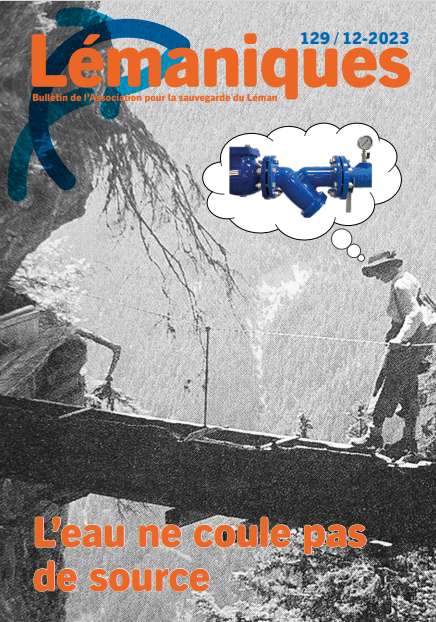
Water doesn't flow from the source Discover the exciting issues at stake in the Lake Geneva basin in the latest edition of the ASL's quarterly magazine! Explore the debate between Man and Nature in the management of water in the Lake Geneva region, with the Rhône playing a central role. How do Alpine water catchments impact on the environment?
Discover the latest issue of our quarterly, Lémaniques
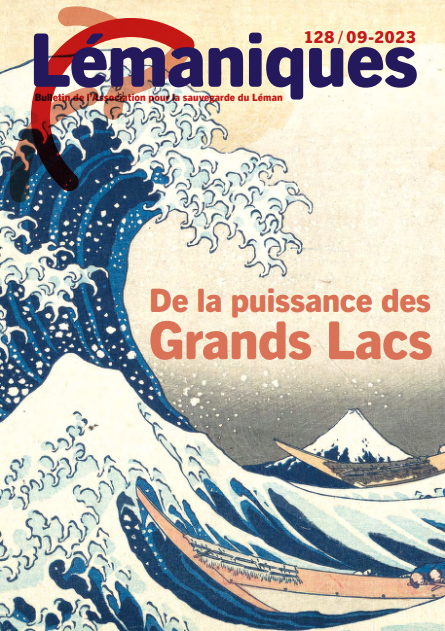
The power of the Great Lakes What do you know about the world's Great Lakes, including Lake Geneva? This issue of Lémaniques sketches out a geography of the Great Lakes, presenting the diversity and complexity of their functions and the services they provide, while at the same time attempting to provide a simplified answer to the question "what makes them tick?

